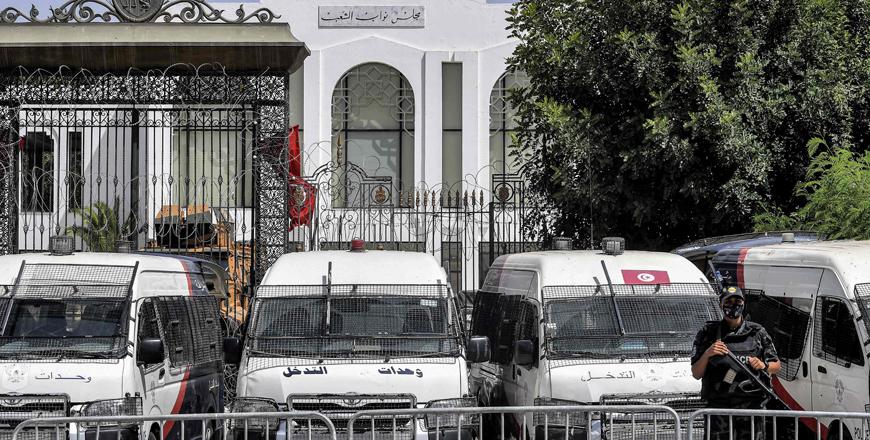- International News
- Web-2021-08-04 | 02:51 pm

Nayrouz News Agency :
UN rights chief Michelle Bachelet voiced her concerns about the political turmoil in Tunisia in a phonecall with the foreign minister, and offered her assistance if required, a spokeswoman said on Tuesday.
Foreign Minister Othman Jerandi called the high commissioner for human rights after President Kais Saied seized power on July 25 following violent demonstrations against the government.
"It’s a worrying situation. We are following really closely and we know the challenges the country is facing,” Marta Hurtado, a spokeswoman for Bachelet’s office, told reporters in Geneva.
"What we hope is that all the achievements towards democratic reform that they have been doing over the last 10 years can be maintained and preserved, and that there’s no regression in any way.”
Tunisia has often been praised as a rare success story for its democratic transition after the Arab Spring regional uprisings sparked by its 2011 revolution.
But many Tunisians are angered at a political class seen as obsessed with power struggles and disconnected from the suffering of the poor, amid high unemployment and spiralling prices.
In a surprise move, Saied sacked prime minister Hichem Mechichi late last month and suspended parliament for 30 days. He ordered a graft crackdown targeting 460 businessmen and an investigation into alleged illegal funding of political parties.
The move plunged Tunisia into political turmoil, adding to the crippling economic crisis as well as a wave of COVID-19 infections.
Hurtado said former Chilean president Bachelet told Jerandi "that we are here to support them — we have an office on the ground in Tunisia — and we are closely following the situation and we are there to help, should they ask for it.
"We are concerned at what is happening but we trust that the authorities have the capacity to deal with it,” Hurtado added.
"But we are open to any request that they might have for help.”













